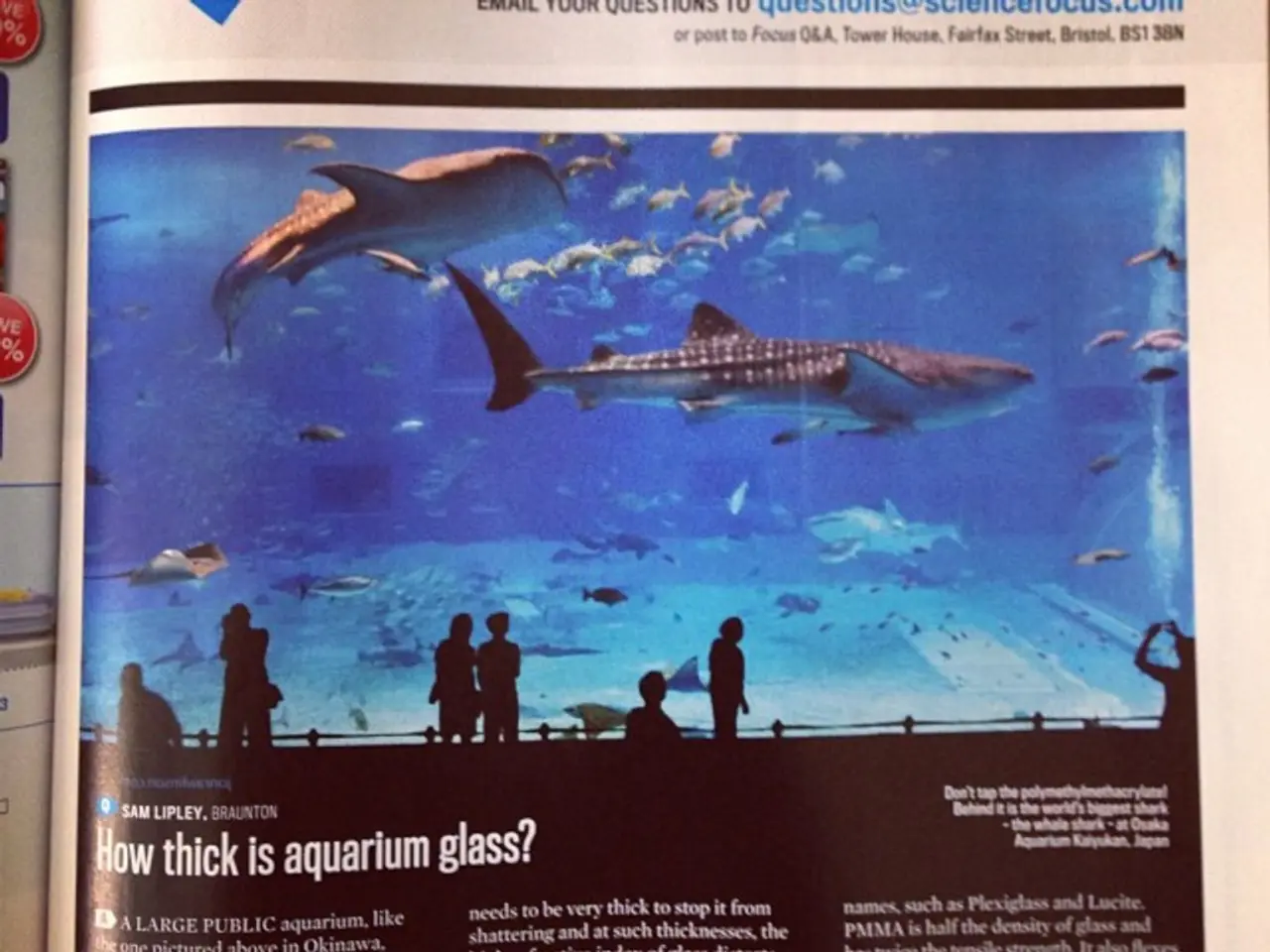Unveiled Connection: Leading Tuna Corporation Alleged for Forced Labor and Illegal Fishing during the Pandemic
In a recent report by Greenpeace, concerns about the ethical and legal credentials of top tuna brands have been raised. The report highlights alleged human rights abuses and illegal, unreported, and unregulated (IUU) fishing practices within the Taiwanese fishing industry.
One of the vessels accused of such practices supplies tuna to the Taiwan-based Fong Chun Formosa Fishery Company (FCF). Another vessel, which is also implicated, delivers its catch to a refrigerated cargo ship that FCF works with.
The report details numerous allegations from fishers, including deception, physical violence, wage deductions, debt bondage, passport confiscation, and excessive working hours. Furthermore, the fishers provided evidence that the vessels took part in unlawful fishing practices, such as shark finning and transferring shark fins between vessels.
Taiwanese vessel owners often contract crew agents to recruit workers from neighboring countries, such as Indonesia, the Philippines, and Myanmar. However, the international nature of the workforce further obscures labor conditions on distant-water vessels. Despite Taiwanese labor laws applying to anyone working on a Taiwanese-flagged vessel, it is difficult for Taiwan to enforce these laws when crew agents offer less pay than the minimum monthly wage.
In 2015, the European Commission gave Taiwan a "yellow card" for insufficient cooperation in combatting IUU fishing. However, in June 2019, the Commission lifted Taiwan's yellow card in acknowledgment of recent efforts to prevent IUU fishing and reform fisheries legal framework.
Greenpeace East Asia campaigner Pearl Chen stated that FCF's efforts to improve its track record are insufficient and out of step with national and international standards. Chen suggested that companies like FCF should enact policies ensuring that each vessel supplying the company is assessed for human rights violations, and that each violation is addressed and measures are put in place to prevent future occurrences.
The requirement for purse seiner tuna boats to have 100% observer coverage has been suspended in parts of the Pacific Ocean due to crews' concerns about catching the virus from observers and inspectors during the COVID-19 pandemic. This suspension raises concerns about the transparency and accountability of the distant-water fishing industry.
Many island countries have pushed for a ban on transhipment at sea for years, but China, South Korea, Japan, and Taiwan have opposed the move. Transhipment at sea, a practice where longliners offload their catch onto other boats for delivery to shore, is a common practice in the distant-water fishing industry. Greenpeace and other organizations have called for a ban on transhipment at sea to facilitate better tracking of fishing and labor practices on distant-water vessels.
During these challenging times, it is crucial for companies to ensure they are putting measures in place to prevent the spread of the virus within factories and on vessels. The consumption of tinned tuna in the U.S. has increased 142% compared to the same time last year, making it more important than ever for companies to uphold ethical and legal standards in their supply chains.








